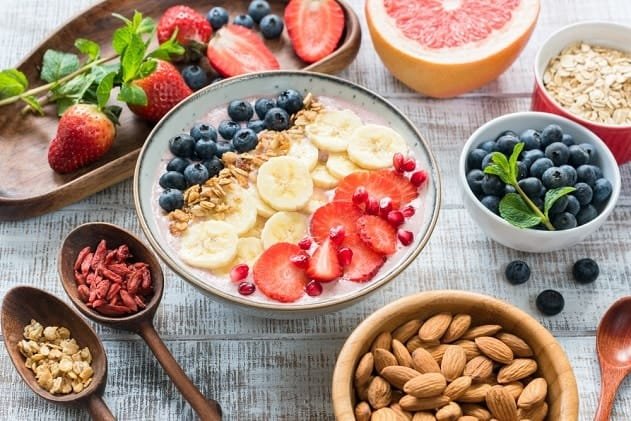What Foods Make Sperm Thicker And Stronger
Male fertility is a complex dance of various factors, and sperm health plays a vital role. While some dietary choices might not directly make sperm “thicker,” they can contribute to overall sperm quality, motility (movement), and count. This translates to a higher chance of conception.
Here, we explore some key dietary components to consider for boosting sperm health:
Antioxidant Powerhouse: Fruits and Vegetables
- Vitamin C: This antioxidant superstar protects sperm from free radical damage, which can hinder their health. Citrus fruits like oranges, grapefruits, and berries are all excellent sources.
- Vitamin E: Another crucial antioxidant, Vitamin E safeguards sperm cell membranes and promotes motility. Load up on spinach, broccoli, and nuts (almonds, sunflower seeds) to get your daily dose.
- Beta-carotene: Converted to Vitamin A in the body, beta-carotene plays a role in sperm production. Sweet potatoes, carrots, and mangoes are great sources.
Zinc Power: The Sperm Production Booster
Zinc is a mineral essential for sperm production and motility. Oysters are well-known for their zinc content, but other options include lean beef, pumpkin seeds, and chickpeas.
Good Fats for a Well-Being Swimmer
Fats are important for sperm health, especially good fats like Omega-3 fatty acids. Fatty fish like salmon, tuna, and sardines are excellent sources. Walnuts and flaxseeds are plant-based alternatives.
Keep it Balanced: Folate and Other B Vitamins
- Folate: Found in leafy green vegetables and fortified grains, folate helps with sperm development and reduces chromosomal abnormalities.
- Vitamin B12: Sperm production depends on this vitamin, which is found in large amounts in meat, poultry, and eggs.
Additional Tips:
- Limit unhealthy fats: processed foods, fried foods, and excessive saturated fats can negatively impact sperm health.
- Stay hydrated: Water is essential for overall health, including sperm production. Aim for eight glasses of water daily.
- Maintain a healthy weight: Obesity can contribute to lower sperm quality.
Remember:
- A balanced and nutritious diet is key. While these mentioned foods are beneficial, focus on incorporating them into a healthy overall dietary pattern.
- It’s always best to consult a healthcare professional for personalized advice on improving sperm health. They can assess potential deficiencies and recommend specific dietary plans or supplements if needed.
Making educated food decisions and putting your health first will help you create an environment that will support healthy sperm and improve your chances of getting pregnant.
what foods make sperm thicker and stronger
